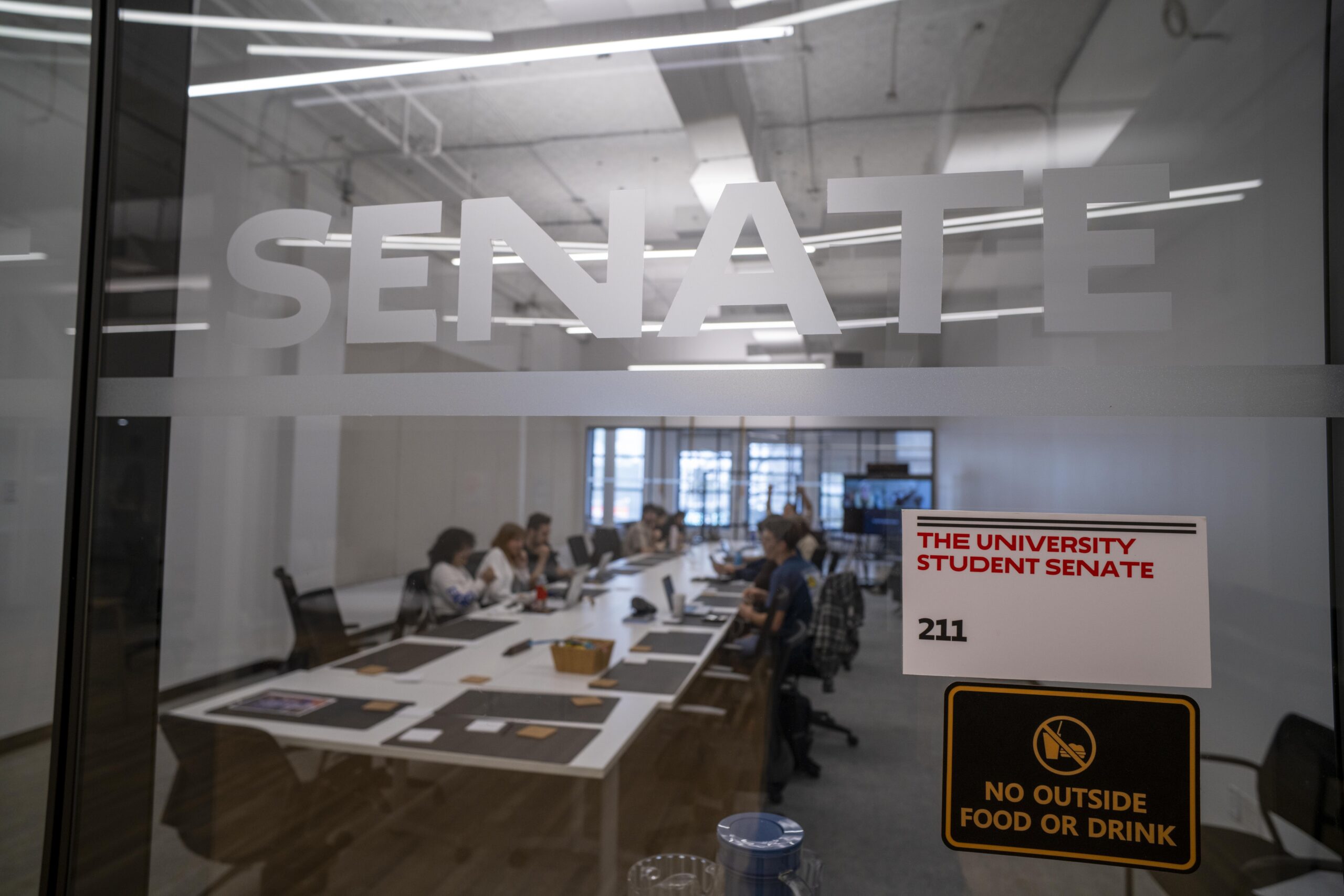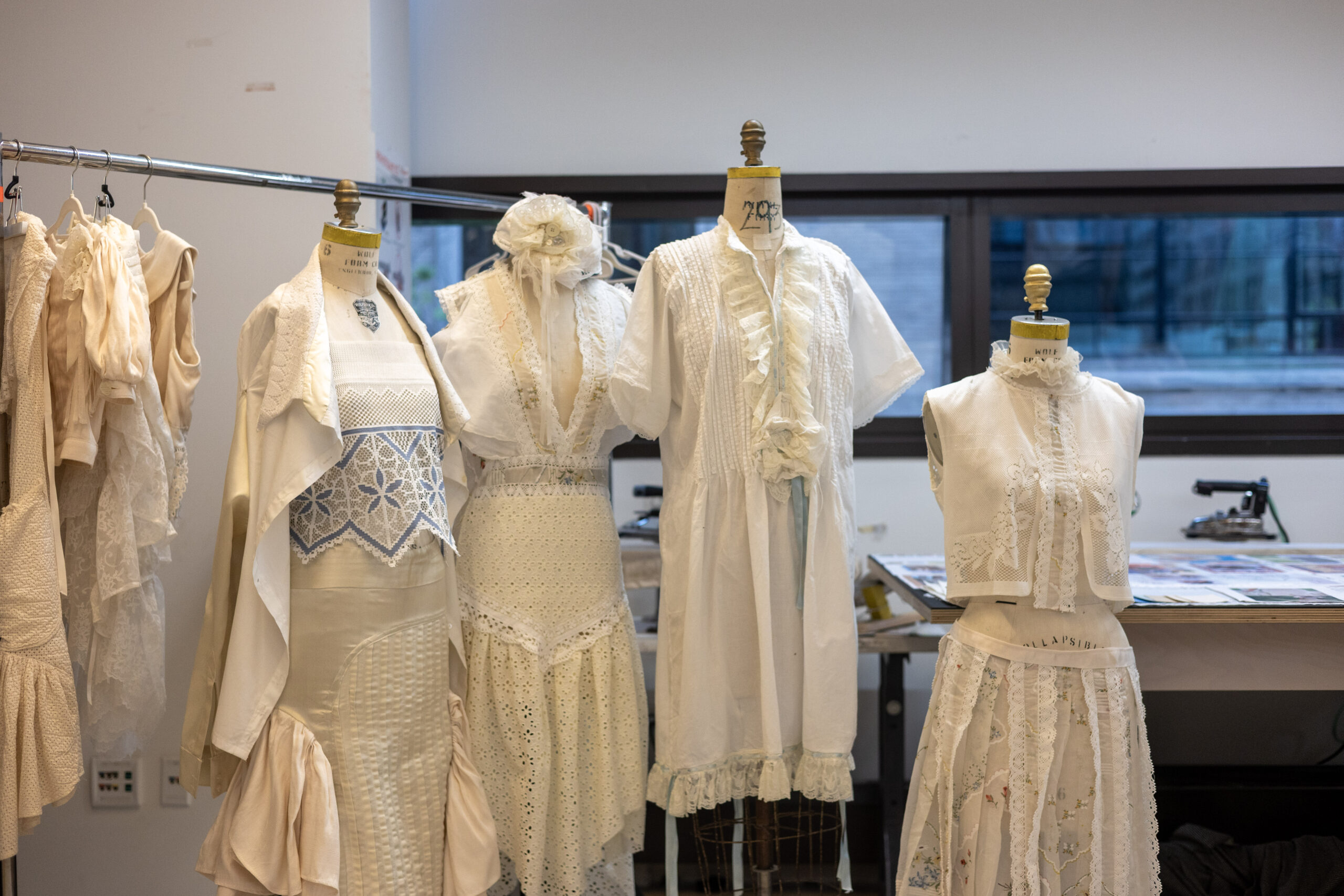This story was updated on Apr. 26 at 4:16 p.m.
The University Student Senate (USS) spent over 90% of their budget by the end of February, according to an audit summary reviewed by the New School Free Press. Their budget was largely spent internally.
The university conducted an audit of USS spending between July 2024 to February 2025, after the current Director of Finance (DoF), Samera Shim, requested an up-to-date balance of senate funds.
NSFP obtained a document prepared by Shim summarizing the university’s findings. The senator who shared the document with the New School Free Press has been granted anonymity as they were not authorized to share the document outside the USS.
According to the audit, USS started the academic year with an estimated $131,000. Even with an additional $80,000 in spring fees, the USS was left with just over $11,000 by the time the audit was completed on Feb. 28.
The audit also revealed that a single senator spent an estimated $75,000 — about 58% of their Fall budget. The individual, although not mentioned by name in the audit, is allegedly former USS Chair Adam Young, according to multiple current senators. Young confirmed some expenses with NSFP, such as furniture in the USS office, but said his purchases did not total $75,000. Young resigned from his position on the morning of Mar. 21.
Many senators stated that Young was told the details of the audit prior to his resignation. Young denied that the reason for his resignation was due to the audit, stating he had planned to resign prior to knowing any of the audit details.
The audit summary documents just how Young allegedly spent the $75,000.
Only a few exact items were listed. Shim wrote in the document that it only contained “the most detailed information” that the Business and Finance office “permitted” the USS to see. Most expenses were grouped under several different categories, sometimes with minimal description. Over $20,000 worth of purchases allegedly made by Young were not identified in the summary.
The document showed that Young’s alleged purchases included furniture and technology for the USS conference room and office, a Christmas tree, and miscellaneous Amazon orders for the USS and student hub, welcome baskets for senators, and more.
Just the expenses on furniture and technology totaled over $21,000.
The document also noted that the university had offered existing furniture to the student senate for the office. University administrators still approved over $14,000 worth of furniture from West Elm and Herman Miller. The document only specified one denied request — a $300 Smeg coffee machine.
“So many things in that room amount to just a waste. I think, in my opinion, it’s like a New School Versailles,” USS Engagement Advocate, Kila Lavarias, said.
“[Young] spent [$92.99] on a statue of a blind woman holding a justice scale … All of this was [bought with] student funds. The students and the parents who pay tuition all paid for this,” USS Advocacy Lead, Ryder Glickman, said.
The USS Constitution mandates that at the beginning of every academic year, the Director of Finance is required to present the annual budget, totalling the estimated allocation of funds. This budget must be approved by a majority of the USS, and any additional allocations through the year must be pre-approved and presented again by the DoF.
According to former USS DoF Leo Ruales, who oversaw the budget during the Fall 2024 semester, the agreed-upon allocation of funds towards the senate’s internal expenses presented at the beginning of the academic year was $50,000. At the time they were told by the university the USS had a budget of $400,000.
Ruales said he was unaware of any new purchases until they arrived on campus. He assumed that the “Student Hub infrastructure investments,” detailed in a recent university-wide email from the USS, were purchased by the university administration and hadn’t come out of the USS budget.
According to Ruales, Young and his former Vice Chair, now Chair, Linfei Yang, also had access to a credit card connected to USS funds. The card is meant for purchases deemed necessary for USS activities, such as catering or transportation for senators to attend their Friday meetings. Ruales alleged that Young and Yang maxed out the credit card on personal purchases in addition to other USS expenses.
Yang told NSFP that he never had access to the credit card, and that he regularly challenged Young on purchases he deemed unnecessary, such as new furniture for the USS office. Additionally, Yang said that the only purchase requests specifically made for him were for transportation purposes in order to attend the USS weekly meetings. Yang emphasized that he, similar to his fellow senators, was also unaware of the amount Young allegedly spent until the details of the audit were shared.
“[The Finance Committee] received the notice that they have maxed out the amount of money [on the credit card] on petty things,” Ruales said, “They bought [a] flag post that was worth [$143.75]…it’s truly just like, insane how much money they were able to [spend]. Even to buy food for themselves, or to go on dates.”
NSFP was unable to independently verify this allegation. However, the audit summary notes that the credit limit on the card was decreased from $5000 to $500 as the DoF “was not receiving [purchase receipts] in a timely manner.”
The USS Constitution also states that the Finance Committee must keep an up-to-date and detailed financial statement of any USS spending throughout the academic year.
Shim had to follow up with the university for about 2 months before receiving the results of the audit. She pushed the university to perform the audit after finding out from USS faculty advisor, Andrade Fearon, that the budget they were provided at the beginning of the year was greatly overestimated. Shim intended to use the correct estimation to create a new budget for the Spring 2025 semester. Instead, she discovered that the majority of the USS budget had already been spent.
Ruales stated that the university was also unaware of the total value of these expenses until Shim asked.
“[The university] didn’t check …[Young and Yang] were able to just run freely with how much money was able to be [approved], while the rest of the senators had a very specific budget,” Ruales said.
In total, the audit estimates the USS spent about $136,000 internally.
The consequences of this spending have directly impacted Registered Student Organizations (RSOs) the most. The USS had to halt funding for student projects and RSOs for the remainder of the semester due to the lack of funds, according to a statement sent on Apr. 11.
According to the audit summary, only about $2,730 had been allocated to RSOs for the Spring semester.
Senators said they’ve had to respond to the aftermath of spending that they were not even aware was occurring. Shortly after Young resigned, some senators were confronted in a Friday meeting by student groups who questioned why their promised funds would no longer be delivered.
“When you spend money, you don’t see the people behind the money. You just see the transaction, right? So to actually see the people and hear the stories of who the Senate has [deprived] funds from, like that was horrible,” Glickman said.
Senators stated that they had promised money to organizations like Project Sankofa, which were relying on student senate funds for transportation to a retreat that highlighted the work of Black artists. When the USS could no longer fund the project, the organization created a GoFundMe to finance the retreat.
One senator said they wanted to see USS fulfill its main function of awarding money across student clubs and organizations. The senator was granted anonymity due to fear of retaliation. “That’s like our one thing that we should [all be] in agreement about… that one goal was a total failure,” they said.
Moving forward, Ruales stated that the university administration has confiscated the credit card from the senate, and Shim is working on stronger financial policies to avoid similar situations in the future.
“If we have no infrastructure, and if someone were to abuse the lack of infrastructure, that also reflects on the institution…I think we need to take accountability there,” Shim said.
“I think accountability is a very personal decision. I would encourage people to take accountability, especially in this situation, as we are given student funds, and we are trusted to spend it responsibly, especially on purchases that are deemed necessary, important, and vital to the … student body,” she said.
Young stated in an interview with NSFP that he was told by former USS advisors not to claim the full $75,000. He said the figures in the audit summary, which were provided by the university’s Business and Finance team, were “false.”
A previous version of this article incorrectly stated the agreed upon internal allocations for 2024-2025 was $60,000. The actual agreed upon internal allocations was $50,000. It also stated Young allegedly spent 57% of the budget. It was 57.54%. This number has been rounded up to 58% in a new version of this article. The story has also been updated to include a new statement from current USS Chair Linfei Yang in response to his alleged spending.








Leave a Reply